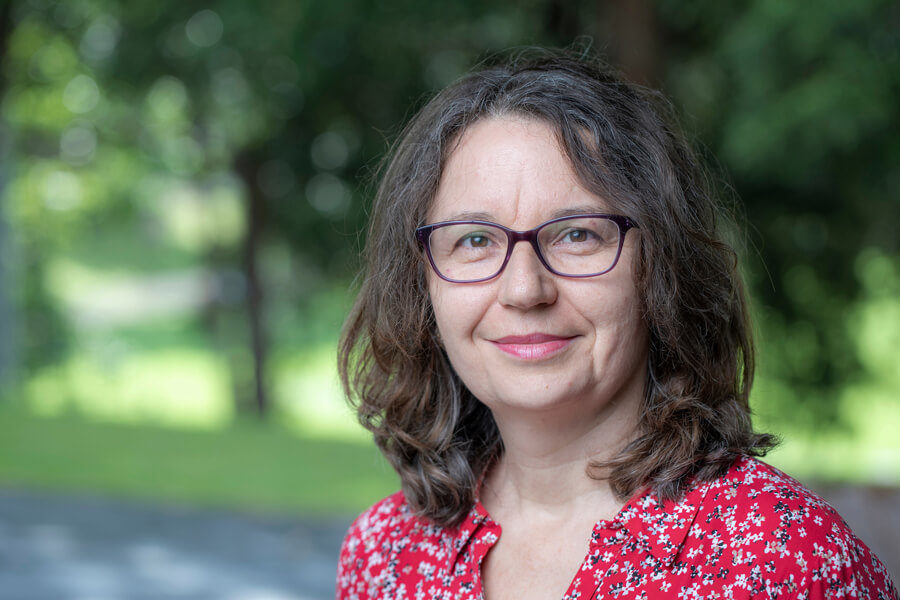Meet Professor Lucie Rychetnik

DATE
TYPE Profiles
She brings to the Prevention Centre a depth of experience and understanding of cross-disciplinary partnership research, evaluation and systems approaches to public health policy.
“I am keen to support the Prevention Centre’s growing network of current and future leaders in research, policy and practice to build the case for prevention as a core component of sustainable social and economic policy,” she says.
Lucie was born in Prague, Czechoslovakia, but her family left for a temporary placement in Geneva in 1968, shortly after the Soviet invasion. After the borders closed, they settled as émigrés in the United Kingdom and Lucie grew up in Oxford.
She trained as a dietitian in London and completed clinical placements in Oxford, but quickly realised that she was more interested in health promotion and public health. She worked in community nutrition in East London before backpacking around Australia in 1988, then settled in Sydney.
Lucie initially worked as a community dietitian for the then Southern Sydney Area Health Service, specialising in migrant health, and then embarked on a career in research by completing a Masters of Public Health at the University of Sydney in 1996, followed by a PhD in 2001 on the nature of evidence and how it was being used in medicine and public health.
She remained at the University for 18 years, working as a senior member of an academic consulting team within the School of Public Health, as well as researching evidence-based practice and contributing to teaching and curriculum development.
More recently, Lucie worked as Associate Professor of Translation Research in the School of Medicine at the University of Notre Dame. She continues to hold academic appointments at both universities.
The challenges of incorporating evidence into public health are what attracted Lucie to be one of the founding Chief Investigators of the Prevention Centre when it was established in 2013.
“In public health there is so much exciting research, but the translation part has always been complex and difficult,” she says.
“One of the big leaps forward is the fact the Prevention Centre is generating evidence in collaboration with the decision makers. It makes the research relevant right from the beginning and overcomes many of the barriers.”
She led the Prevention Centre’s synthesis work for more than two years, including the early development of our dynamic simulation program. “Our role was to come up with new systems-based thinking about evidence synthesis and knowledge translation. It became obvious that a participatory approach to modelling was the tool we could use to do that,” she says.
Since 2016 she has been on sabbatical in Geneva, where she has explored her longstanding interest in sustainable development and climate change. During her time in Europe she has worked with the Global Climate and Health Alliance, supporting their advocacy work and making a case for philanthropic support. She has also completed further studies in climate change management through the University of Edinburgh.
“I think there is a lot of overlap between the prevention of chronic disease and prevention of climate change. For example, in both areas corporations are driving the risk, and we face the same challenges around informing policy through evidence rather than vested interests. The parallels are striking,” she says.
“And when we are recommending changes to transport systems to increase physical activity, many of the same policy arguments are being made from air pollution and climate change perspectives to reduce emissions. There really is scope to collaborate more across agendas so that we communicate the same policy advice with a better aligned case for health and wellbeing.”
As Deputy Director – Research of the Prevention Centre, Lucie aims to continue to synthesise and draw out the shared recommendations across different programs of work.
“I am interested in looking at what have we learned so far in terms of the implications for policy and practice, and how as a centre we can align these lessons into a coherent overall narrative about disease prevention and social policy. From that, we can look more broadly and think about synergies with other areas like sustainable development,” she says.
“I am also interested in the many different approaches and ways of implementing knowledge mobilisation across the Prevention Centre, and continuing our development of this as a formal area, with evaluation of knowledge mobilisation processes in different contexts.”
When she is not at work, Lucie loves hiking – she has recently completed long hikes around Annapurna and Mont Blanc with her husband Steve – and working on her spoken French and Czech.



